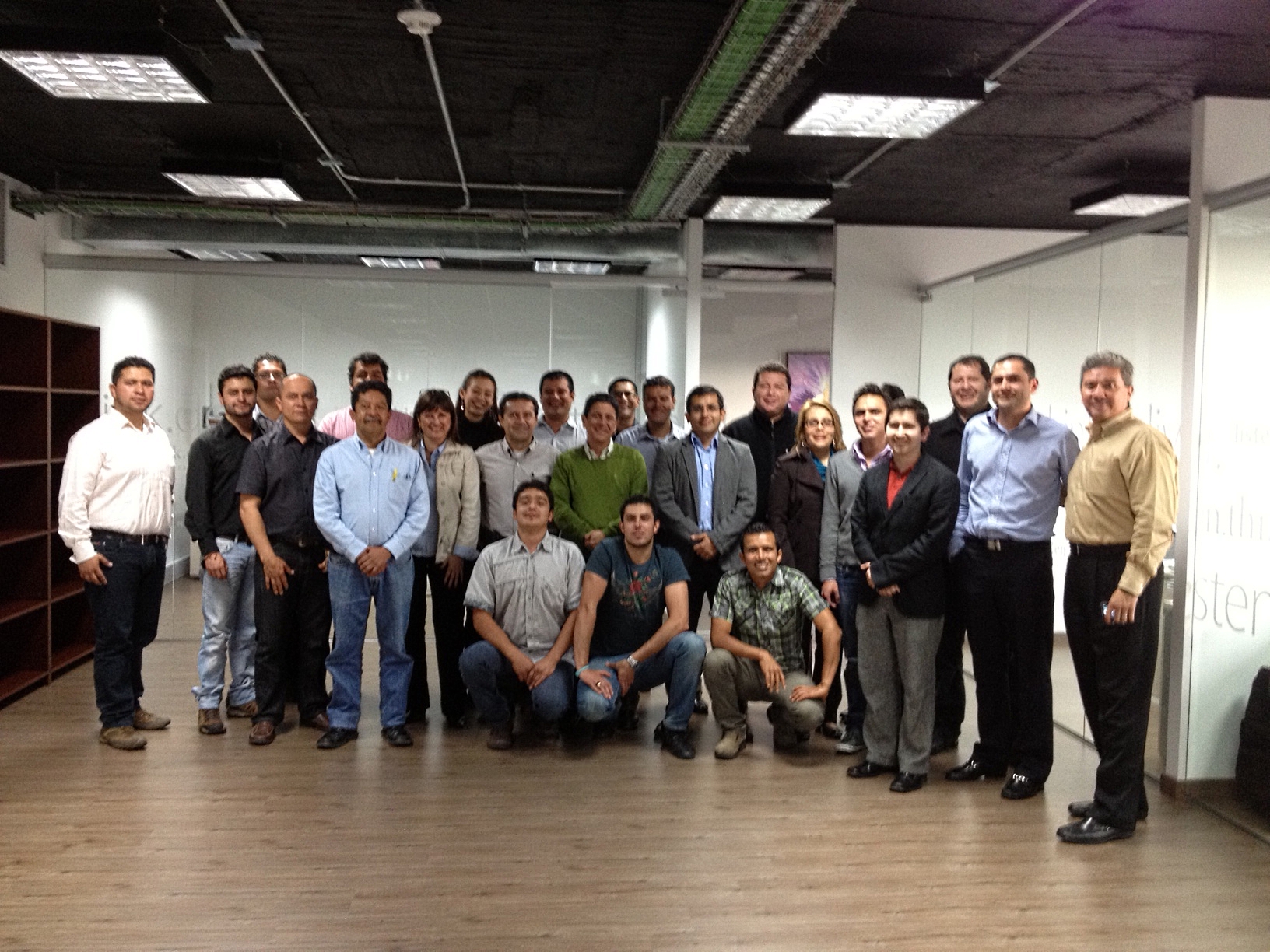December 2012, Vol. 67 No. 12
Features
PACP Class Held In Colombia

NASSCO, the National Association of Sewer Service Companies, recently conducted its first-ever Pipeline Assessment Certification Program (PACP) course in Spanish. Held in Bogotá, Colombia, on Oct. 17-18, the instruction included the recently-translated PACP manual and training materials.
The two-day class was held at CDM-Smith’s Bogotá office, and was delivered by Master PACP Trainer Luis R. León, PE, BCEE, a project manager at CDM-Smith. Far exceeding expectations, 22 sewer professionals participated in the class which led to a well-diversified learning experience. Participants included contractors, consulting firms, operators and municipal engineers. In particular, there was a high number of engineers and operators attending from the three largest municipal sewer service providers in Colombia: Bogotá (EAAB), Medellín (EPM) and Cali (EMCALI).
This important NASSCO milestone is a breakthrough in the South American region. Within just two months of the release of the PACP manual translation to Spanish, the class attendance and the reception to this program showed clear evidence that NASSCO’s efforts to provide a complete PACP class in Spanish are significant. Professionals in Latin America are eager for valuable training and education on practical topics related to pipeline assessment and trenchless rehabilitation.
Diego Calderón, NASSCO’s technical assistant, explained that “NASSCO has recently identified a very high demand for more comprehensive and consistent databases to properly evaluate and rehabilitate underground infrastructure from system owners in Central and South America. It is our immediate goal to better serve not only the entire North American continent, but all Spanish-speaking countries as well.”
The inaugural Spanish course included the review of inspection videos from surveys recently made in Colombia, which were analyzed and compared with PACP. The audience easily recognized the advantages of standardized coding and the shortcomings of multiple coding systems previously established by sewer service providers throughout the country. The use of their own CCTV videos in the training helped the students apply the PACP concepts and coding to a real world situation. The advantages brought to light by the PACP training in Colombia were immediately identified by the participants.
High marks
A translated version of the PACP test was given after the class, and all participants achieved the minimum passing grade of 85 percent. “We were honored to present PACP user certifications to all 22 students, and the class evaluations were very positive — indicating that the students received great value from the course,” Calderón stressed.
Student Guillermo Barbosa, the CEO of a contracting firm, told the event organizers that “This class was great. I am leaving here with high hopes that NASSCO can provide additional programs that cover other topics sometime soon.”
“All participants left the clear message that more training in Spanish is needed and will be welcome,” said León. “Therefore, we may assume that the translation of additional programs and publications, such as the MACP [Manhole Assessment Certification Program], LACP [Lateral Assessment Certification Program] and the ITCP [Inspector Training Certification Program] would be beneficial to this group.”
NASSCO’s mission is to set industry standards for the rehabilitation and assessment of underground infrastructure and to assure the continued acceptance and growth of trenchless technologies, wherever the need exists. The PACP standard was translated into French four years ago, and is now the inspection standard throughout all the province of Quebec, Canada. The translation to Spanish is another step for NASSCO to fulfill the goal to improve the success rate of everyone involved in the infrastructure assessment and rehabilitation industry, primarily through valuable educational opportunities like PACP.
NASSCO works to deliver services such as PACP wherever the need is expressed. To date, the group is considering requests to schedule PACP classes in Puerto Rico, Ecuador, Mexico and El Salvador. If you have a group that would benefit from PACP training in North, South or Central America, please visit nassco.org or contact Diego Calderón at diego@nassco.org, (410).




Comments